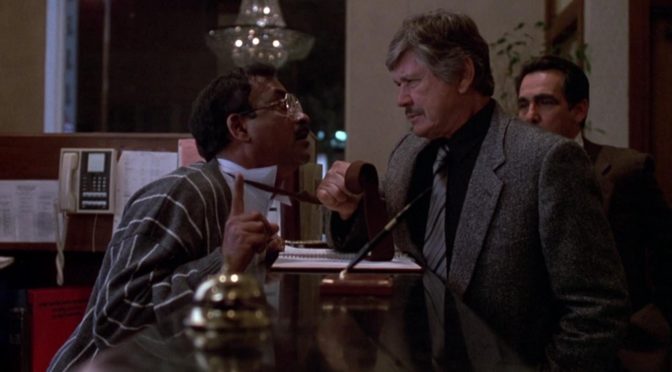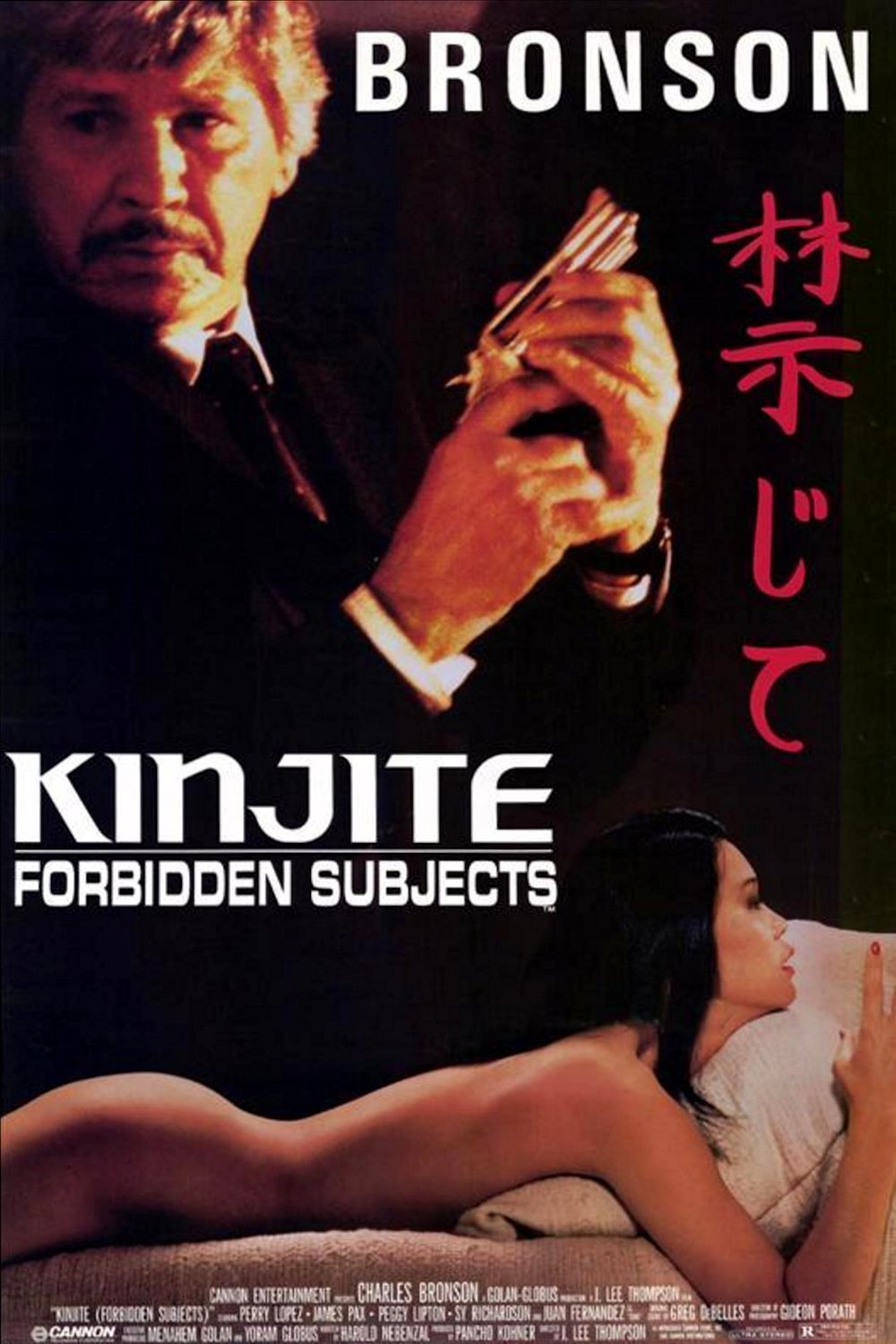[after making the pimp named Duke swallow a diamond-encrusted watch]
Duke: I’m dying!
Lieutenant Crowe: No, you’re not… But you are gonna have to stick your head between your legs to tell the time.
Kinjite: Forbidden Subjects (1989)
I’m certainly capable of acknowledging some of the more problematic aspects of older films with regards to their treatment of gender and race. Without getting into a much broader philosophical debate about placing films in their appropriate context, some movies are merely a reflection of contemporaneous pre-evolved attitudes and some movies are just plain gross.
Welcome to Kinjite: Forbidden Subjects — where the population of Asians becomes a scourge on Los Angeles and the only man standing between your daughter and child prostitution is Charles Bronson.

Kinjite’s “Perspective”
Released on February 3rd, 1989, the ninth and final collaboration between Bronson and director J. Lee Thompson requires a bit more editing to make the 67-year-old Bronson a believable action hero. As part of his character makeup, Bronson’s Lieutenant Crowe is a xenophobic revenge-filled vigilante surrounded by lunatics with even more warped frames of references.
And to showcase exactly how warped this movie’s point of view is, I’d like to highlight one particular scene. Crowe confesses to his captain that he’s off his A-game because some sombitch oriental molested his daughter on a bus. The captain, straight out of the angry-for-no-reason police captain playbook, goes off his rocker. He tells Crowe about how his “nephew Stevie was touched by a priest in choir practice. NOW WHAT THE HELL’S THAT GOT TO DO WITH YOUR WORK?”
Why is that dialogue in your movie? Not even the “It was the 80’s!” defense can make that okay. That wasn’t ever okay! None of it, but then again, the movie never actually ties up that molestation thread because it doesn’t think so much of it either. Like the police captain, Kinjite suggests “Hey, this daily mistreatment of women doesn’t much matter because THERE ARE MINORS BEING KIDNAPPED AND FORCED INTO PROSTITUTION.”

Just to clarify, while we all believe that just because one is totally heinous that doesn’t absolve the relatively lesser, but still abhorrent, sin, right? I’m not insane here.
Kinjite’s Story
Bronson’s hot on the trail of a pimp by the name of Duke who runs a child prostitution ring. Now Duke’s not Asian (he’s reliable bad-guy character actor Juan Fernández) and Duke’s crew is mostly black so at least the movie spreads around it’s racism.
The movie’s focus on the growing Asian influence in southern California seems ancillary to the premise of the film. The movie borrows the Japanese term “kinjite” for the title. There’s also that aforementioned secondary narrative about how it’s apparently permissible to molest women on public transportation — specifically in Japan. Due to their culture of shame they won’t speak out. None of this, however, ties directly into Crowe’s vendetta against Duke.

If the kidnapping and ultimate “rescue” of a Japanese girl from Duke’s clutches intends to soften our protagonist, there’s no on-screen evidence to suggest his newfound appreciation of cultural diversity. He’s just satisfied that he’s achieved his goal of putting baddies behind bars.
Kinjite: A Verdict
Though a dud at the box office (for good reason), Kinjite offers viewers a few lasting images in exchange suffering through the gross bits and hackneyed Golan-Globus dialogue.
Charles Bronson waves around a dildo for a brief moment in the opening scene and later makes Duke swallow a massive watch. He accidentally drops a perpetrator off a balcony because he’s wearing fancy loose boots. When he gives Duke some “poetic justice” by gleefully walking the “pretty boy” into prison, Danny Trejo makes an early film appearance as one of the very hardened catcalling inmates excited to welcome their new friend.
Like I said – gross.


